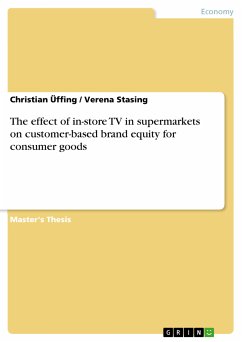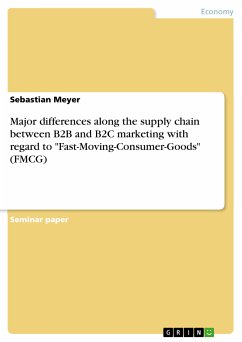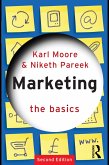Master's Thesis from the year 2009 in the subject Business economics - Offline Marketing and Online Marketing, grade: B , Lund University, language: English, abstract: The purpose of the study is to provide empirical evidence if the exposure to in-store TV in retail stores does effect customer-based brand equity of the advertised product. The aim is to verify if a causal relationship between in-store TV and brand equity exists. The underlying research philosophy of this thesis is positivism. A cross-sectional research design and a deductive approach to theory are used. The quantitative data consists of structured observations and structured interviews with a sample size of n=169. A control group was used to be able to compare brand equity levels. The empirical work was performed in the Swedish supermarket ICA Kvantum Mobilia in Malmö. Consumers that passed the in-store TV were observed and afterwards surveyed with a questionnaire. A comparison of consumers that viewed the TV with those who did not, makes it possible to analyze and compare customer-based brand equity. The findings indicate that in-store TV can in fact influence customer-based brand equity. A causal relationship between the two objects of study is confirmed. The brand equity dimension that showed a significant impact is uniqueness.









